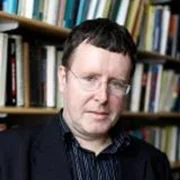Enhancing democracy in the British electoral system

LSE professors were instrumental in electoral design and reform in the UK at the city, town, borough and national levels.
What was the problem?
A voting system was needed to elect the newly created post of the Mayor of London and the London Assembly.
What did we do?
As a result of their widely published research on different electoral systems, LSE Professors Patrick Dunleavy and Helen Margetts were commissioned in 1997 to advise on the optimal systems for electing the London Mayor and the London Assembly.
They worked closely with the Prime Minister's office at Number 10, with Nick Raynsford (the Minister involved) and with staff in the Government Office for London, a part of the Department of the Environment, Transport and the Regions and the entity that had commissioned them.
For the London Mayoral election, they recommended a Supplementary Vote (SV) system as the most suitable for electing single office-holders for a whole regional or local authority area. Under an SV system voters can choose, if they wish, both a first and second choice of candidate.
For the London Assembly election, they designed an Additional Member System (AMS) composed of 14 local constituencies spanning two to three London boroughs each and a London-wide party list of 11 seats. Under this AMS system voters could choose a candidate from their local constituency as well as one from the party list.
What happened?
The new voting systems were outlined in Dunleavy and Margetts' 1998 report, Electing the London Mayor and the London Assembly,a key reference document during debates on the Greater London Authority Bill. MP Raynsford cited it as evidence that the government had adopted expert advice neutrally, and it was referred to several times in debates as the Bill went through Parliament. The systems were fully adopted and implemented in the Act, approved by a large majority in 1999.
Both systems proved effective, with elections in 2000 and 2004 showing high levels of voter understanding. Nearly five-sixths of London voters used both Mayoral votes, and over four-fifths cast List as well as Constituency votes in the Assembly elections. Turnout rose from 34 per cent in 2000 to 45 per cent by 2008 (very high for a London election) and fell back to 41 per cent in 2012.
In the London Mayoral elections, the proportion of voters using the second ballot reached 83 per cent in 2008 and remained high (80%) in 2012, a key success indicator.
Due to its success in London, Supplementary Vote was adopted by the government as the voting system for all directly elected mayors in 15 other English cities, towns and boroughs: Bristol, Liverpool, Leicester, Doncaster, Salford, Watford, Torbay, Bedford, Middlesbrough, North Tyneside, Mansfield and the London boroughs of Hackney, Newham, Tower Hamlets and Lewisham. It was also used in Hartlepool and Stoke-on-Trent, which have subsequently scrapped the role of mayor.
The SV system was then used to elect Police and Crime Commissioners in England and Wales in 2012. Although national turnout was low (15 per cent), the system itself proved successful, with 64 per cent of electors using their second preference vote.
LSE's expertise in electoral reform has informed debate in a variety of ways. Dunleavy and Margetts were commissioned by the Cabinet Office to produce reports advising the Jenkins Commission on electoral reform of UK General Elections and the Wakeham Commission on reform of the House of Lords.
LSE Professor Simon Hix co-wrote an influential British Academy report on voting system alternatives in the run-up to the AV (alternative vote) referendum of 2011, in which the UK electorate rejected proposed changes to the way MPs are elected.
LSE experts on electoral reform, including Hix, Dunleavy, Dr Bill Kissane and Professor Tony Travers, addressed Parliament and Parliamentary Committees on the issue, and their evidence was cited in Commons and Lords debates.
LSE's Department of Government and the LSE Public Policy Group also pioneered new ways of disseminating research on electoral issues and influencing understanding and debate. The British Politics and Policy (BPP) blog at LSE published 65 blogs on the AV campaign and led discussions on House of Lords reform. With 15,100 Twitter followers, BPP was ranked as the 8th largest UK political think tank in Autumn 2012 and averaged 4000 views a week. It won the 2012 Times Higher Education award for outstanding knowledge exchange.
British Government @ LSE, directed by Travers, hosted a wide range of elite speakers at public and Chatham House rules seminars. Additionally, Dunleavy and Travers ran a long-standing programme with the London Correspondent Service of the Foreign and Commonwealth Office (FCO) and the Foreign Press Association over the 2008-13 period, with 13 events held every six months (more in the general election) and attended by 50-70 accredited journalists each.
Finally, in February 2013, the Democratic Audit (DA) of the UK transferred to LSE, to be co-directed by Dr Jonathan Hopkin and Professor Dunleavy. The DA web presence was relaunched in a blog format and a new programme of applied research was defined.
